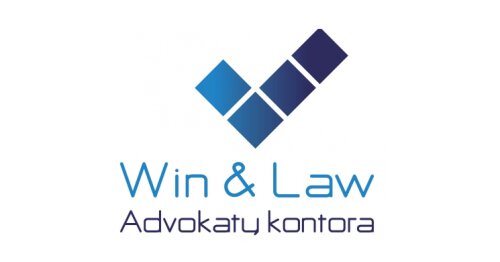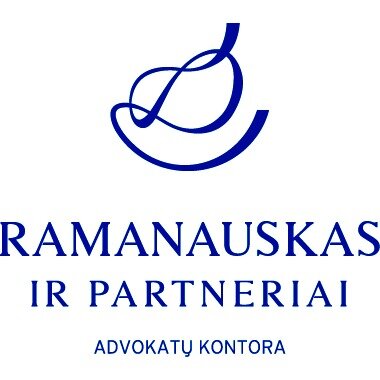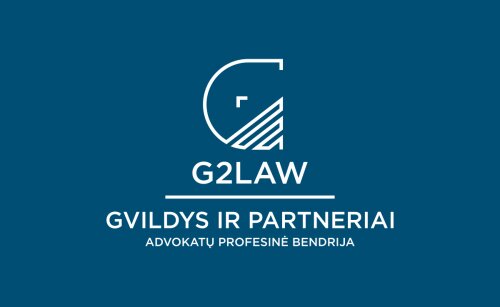Best Sanctions & Export Controls Lawyers in Klaipėda
Share your needs with us, get contacted by law firms.
Free. Takes 2 min.
List of the best lawyers in Klaipėda, Republic of Lithuania
About Sanctions & Export Controls Law in Klaipėda, Republic of Lithuania
Sanctions and export controls law in Klaipėda, Republic of Lithuania, refers to the legal framework that regulates the movement of goods, technology, services, and financial resources across national borders, especially when it comes to restricted countries, organizations, or individuals. Lithuania, as a member of the European Union and NATO, aligns its sanctions and export controls closely with EU regulations and United Nations Security Council resolutions. This means that many international trade activities carried out by businesses or individuals in Klaipėda must comply with both Lithuanian national laws and broader EU requirements.
Sanctions can include restrictions on trade, freezing of assets, or travel bans against specific states, persons, or organizations. Export controls, on the other hand, govern the permission needed to export sensitive goods, technologies, or information that could have military or dual-use applications.
Why You May Need a Lawyer
Navigating sanctions and export controls laws can be complex, especially as the regulatory landscape is constantly evolving. People and businesses in Klaipėda may require legal assistance in several situations, including:
- Engaging in international trade where goods or services may be subject to sanctions
- Exporting or importing items classified as dual-use goods or strategic items
- Conducting due diligence on foreign business partners to avoid accidental dealings with sanctioned parties
- Responding to investigations or audits by Lithuanian authorities
- Securing export licenses or challenging license denials
- Understanding recent EU or UN sanctions that impact business operations
- Providing employee training and compliance programs
- Handling frozen assets or facilitating cross-border financial transactions
- Defending against possible violations or administrative penalties
- Interpreting complex legal language in sanctions regulations
A lawyer with experience in sanctions and export controls can help ensure you remain compliant, avoid costly violations, and respond effectively to regulatory inquiries.
Local Laws Overview
Lithuania implements international, European Union, and national sanctions, subjecting certain goods, technology, and services to export controls. The key legal instruments relevant to sanctions and export controls in Klaipėda include:
- Law on the Implementation of Economic and Other International Sanctions - sets the legal foundation for applying and enforcing sanctions, including asset freezes and travel bans.
- The Law on Strategic Goods Control - governs licensing, control, and monitoring of items that may have dual-use or military applications.
- EU Regulations - directly applicable in Lithuania, these establish the requirements for sanctions and controls across all EU member states.
- Customs and National Security Provisions - set out specific procedures for customs checks, reporting, and cooperation between authorities.
Key compliance obligations include screening transaction partners, obtaining necessary export permits, reporting suspicious transactions, and maintaining robust internal compliance procedures. Failure to comply can lead to administrative fines, criminal liability, loss of export privileges, or reputational damage.
Frequently Asked Questions
What are the main types of sanctions applied in Klaipėda, Republic of Lithuania?
The main types are asset freezes, restrictions on the export or transfer of certain goods and technologies, travel bans, and financial sanctions against individuals, organizations, or countries as per EU and UN regulations.
Which government authority oversees sanctions and export controls in Lithuania?
The Ministry of Foreign Affairs is primarily responsible for the oversight and implementation of sanctions, while the Customs Department and the State Security Department handle operational enforcement of export controls.
What constitutes a dual-use good?
A dual-use good is any item, software, or technology that can be used both for civilian and military purposes. These goods are subject to additional controls and require special export licenses.
Do EU sanctions automatically apply in Klaipėda?
Yes, as an EU member state, all relevant EU sanctions and export controls apply directly throughout Lithuania, including the Klaipėda region.
Is an export license always required for cross-border shipments?
Not always. Export licenses are required only for specific goods listed as controlled, especially military or dual-use items. However, you must always check product classifications and destination countries.
What should I do if I suspect a business partner is subject to sanctions?
Immediately halt any transactions and conduct a screening process. Seek legal advice to ensure compliance and report suspicions to relevant authorities if necessary.
Can sanctions apply to services, not just goods?
Yes, sanctions can apply to the provision of financial, technical, or other services related to restricted goods or parties.
What are the penalties for violating sanctions or export control regulations?
Penalties can include administrative fines, criminal prosecution, forfeiture of goods, loss of business licenses, and reputational harm.
How often do sanctions lists change?
Sanctions lists are updated frequently, sometimes several times per year, following EU or UN decisions. Continuous monitoring is essential.
How can I ensure my business is compliant?
Implement a robust compliance plan, provide regular employee training, utilize screening software, and consult with a legal professional familiar with local and EU laws.
Additional Resources
For further information, guidance, and updates on sanctions and export controls law in Klaipėda, the following resources and organizations can be helpful:
- Ministry of Foreign Affairs of the Republic of Lithuania
- Customs Department under the Ministry of Finance
- State Security Department of Lithuania
- European Commission Directorate-General for Trade
- Chamber of Commerce, Industry, and Crafts of Klaipėda
- Local law firms specializing in international trade and sanctions compliance
These institutions offer official information, guidelines, and updates relevant to current sanctions regimes and export control policies.
Next Steps
If you believe you may be affected by sanctions or export control regulations in Klaipėda, consider the following steps:
- Review your business operations, transactions, and international partnerships for possible exposure to sanctions and export controls.
- Contact a legal professional experienced in sanctions and export control law for an assessment and tailored advice.
- Gather and organize all relevant documentation, including contracts, communications, invoices, and export records.
- Stay up to date by subscribing to alerts from official bodies like the Ministry of Foreign Affairs or the Customs Department.
- Consider scheduling regular staff training on compliance protocols and legal obligations.
Acting proactively and seeking legal guidance early can help you manage risks, avoid costly legal disputes or penalties, and ensure your business remains in full compliance with applicable law in Klaipėda, Republic of Lithuania.
Lawzana helps you find the best lawyers and law firms in Klaipėda through a curated and pre-screened list of qualified legal professionals. Our platform offers rankings and detailed profiles of attorneys and law firms, allowing you to compare based on practice areas, including Sanctions & Export Controls, experience, and client feedback.
Each profile includes a description of the firm's areas of practice, client reviews, team members and partners, year of establishment, spoken languages, office locations, contact information, social media presence, and any published articles or resources. Most firms on our platform speak English and are experienced in both local and international legal matters.
Get a quote from top-rated law firms in Klaipėda, Republic of Lithuania — quickly, securely, and without unnecessary hassle.
Disclaimer:
The information provided on this page is for general informational purposes only and does not constitute legal advice. While we strive to ensure the accuracy and relevance of the content, legal information may change over time, and interpretations of the law can vary. You should always consult with a qualified legal professional for advice specific to your situation.
We disclaim all liability for actions taken or not taken based on the content of this page. If you believe any information is incorrect or outdated, please contact us, and we will review and update it where appropriate.















